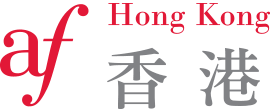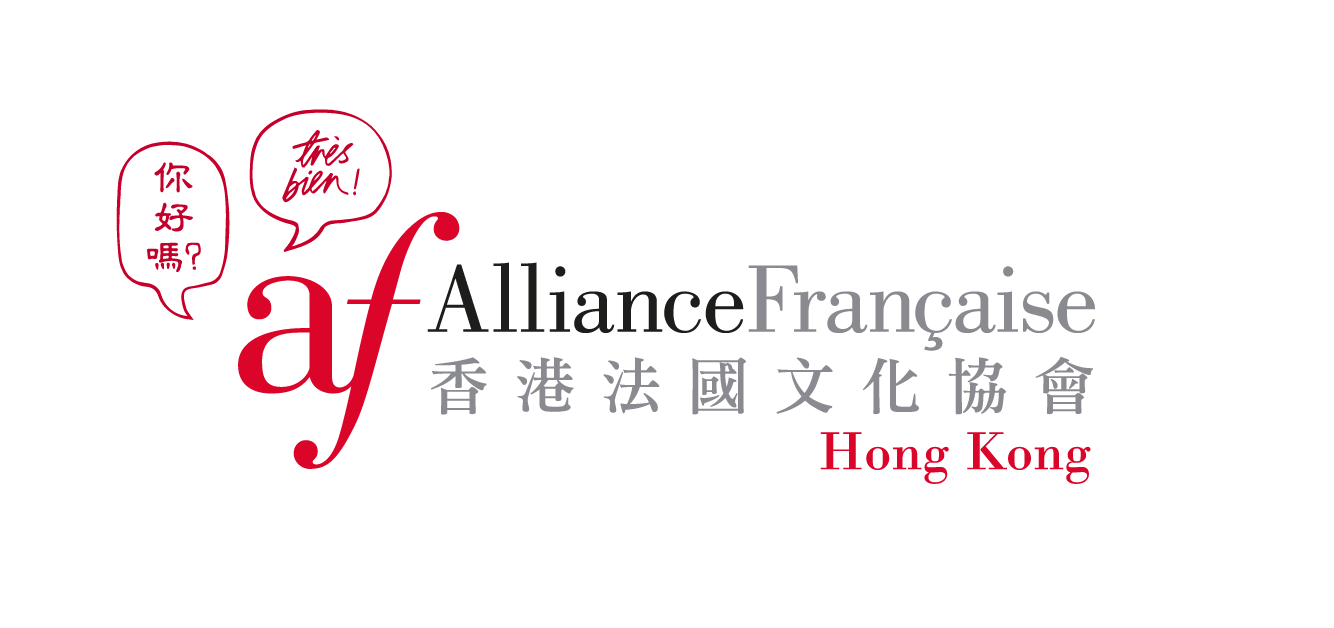La captivante exposition sur I.M. Pei au M+ Museum

(FR)
La semaine dernière, l’équipe de l’Alliance Française de Hong Kong s’est rendue au M+ Museum pour
découvrir l’exposition "I.M. Pei: Life Is Architecture", disponible jusqu’en janvier 2025.
Ioh Ming Pei (1917-2019),
architecte sino américain, est mondialement connu pour son approche innovante et multiculturelle de l’urbanisme. Il est à
l’origine de célèbres constructions à travers le monde : la pyramide du Louvre à Paris (1983), la tour de la Bank
of China
à Hong Kong (1989), le musée Miho près de Kyoto (1996) ou encore le musée d’Art Islamique de Doha
(2008).
(EN)
Last week, the Alliance Française team discovered the exhibition “I.M. Pei: Life Is Architecture”, which
will be on display at the M+ Museum until January 2025.
Ioh Ming Pei (1917-2019), a Chinese-American
architect, is internationally recognized for his innovative and multicultural approach to urban planning. He is credited with designing
iconic buildings such as the Louvre Pyramid in Paris (1983), the Bank of China Tower in Hong Kong (1989),
the Miho Museum near Kyoto (1996), and the Museum of Islamic Art in Doha (2008).
(CN)
上星期,法國文化協會團隊一同到M+參觀「貝聿銘:人生如建築 」全面回顧展,展期至2025年1月結束。
貝聿銘(1917-2019)是一名美籍華裔建築師,他的建築項目以創新和揉合多元文化的城市規劃方式,廣受國際認可。他設計過許多標誌性建築,備受讚譽,包括巴黎羅浮宮金字塔(1983)、香港中銀大廈(1989)、位於京都附近的美秀美術館(1996)和多哈伊斯蘭藝術博物館(2008)。

L'influence de l'architecture française
(FR)
IM Pei naît à Guangzhou en 1917 puis grandit à Hong Kong, où son père dirige la Bank of China. Il étudie les Beaux-Arts
à l’Université de Pennsylvanie (US) puis entame des études d’ingénieur au MIT, où il découvre l'architecte suisse et naturalisé
français Le Corbusier et le modernisme. Il commence à travailler sur des projets architecturaux en 1948
lorsqu’il rejoint la firme Webb and Knapp. La dépression économique, la guerre Sino-japonaise et la seconde guerre mondiale ont
beaucoup influencé son travail en lui donnant une flexibilité et une dimension multiculturelle.
(EN)
IM Pei was born in 1917 in Guangzhou and grew up in Hong Kong, where his father runned the Bank of China. He studied Modern
French
architecture at the University of Pennsylvania (USA), then Engineering at MIT. There he discovers the modern style of naturalised French
Swiss architect Le Corbusier. He began working on architectural projects in 1948 with the architectural firm Webb and
Knapp. The times highly influenced his work : through an Economic depression, the Second Sino-Japanese War, and the Second World War, he
learned to adapt to different environments, which resulted in shaping cities worldwide.
(CN)
貝聿銘於1917年生於廣州,後移居香港,同時他的父親在港設立中國銀行香港分行。貝聿銘先在美國賓夕法尼亞大學攻讀現代法國建築,後轉往麻省理工學院學習工程。在學院就讀期間,他探索了瑞士和法國雙國籍建築師柯比意(Le
Corbusier)的現代主義建築。貝聿銘於1948年加入地產商齊氏威奈公司,時代變遷對貝聿銘的建築項目有着深厚影響,經歷過美國大蕭條、第二次中日戰爭、第二次世界大戰,他學會因時制宜,使其日後於世界各建設城市。
Un style avant-gardiste
(FR)
Le style de M. Pei est moderne, géométrique et audacieux. Il travaille souvent avec des matériaux froids tels
que la pierre, le béton, le verre et l'acier.
(EN)
I. M. Pei’s architectural style is characterised by its modern, geometric, and bold elements. He often works with cold materials like
stone, concrete, glass, and steel, continually pushing the boundaries of aesthetics and technology.
(CN)
貝聿銘的建築風格揉合現代元素、幾何圖案和分明線條。作品多採用冷色調的建築材料,如石頭、混凝土、玻璃和鋼鐵,持續突破美學和技術界限。
.jpg)

1) Pei's project for La Défense, Paris (unbuild)
貝聿銘設計的巴黎拉德芳斯(未被採用)
2) L'Enfant Plaza, Washington
華盛頓特區朗方廣場
La pyramide du Louvre, un projet controversé
 (FR)
(FR)
En 1981, François Mitterrand, président de la République Française, souhaite rénover le musée du Louvre à Paris. Sous la
supervision d’Émile Biasini, Pei se joint à l'équipe. Il est considéré comme un véritable atout pour sa connaissance de la
civilisation antique et son attrait pour la modernité. Il devient le premier architecte étranger à travailler sur le Louvre.
Pei opte pour une pyramide de verre au centre de la Cour Napoléon qui apporte de la lumière dans l’antichambre du musée. Sa forme rend
hommage à l’architecte et paysagiste français André Le Nôtre, au service de Louis XIV.
L’inspiration égyptienne de la pyramide rappelle aussi l’obélisque de Louxor place de la Concorde.
(EN)
In 1981, former French president François Mitterrand decided to renovate the Louvre Museum in Paris. Under the supervision
of Émile Biasini, Pei joined the team. He is considered a real asset for his knowledge of ancient civilization and his attraction to
modernity. He becomes the first foreign architect to work on the Louvre.
Pei opted for a glass pyramid in the center of the Cour Napoléon, bringing light into the museum's antechamber. Its shape pays homage
to French architect and landscape gardener André Le Nôtre, in the service of Louis XIV. The pyramid's
Egyptian inspiration is also reminiscent of the obélixe de Louxor, Place de la Concorde.
(CN)
1981年,法國前總統米特朗(François Mitterrand )決定翻新巴黎羅浮宮。貝聿銘加入了埃米爾·比亞西尼(Émile Biasini)為首的團隊,憑着對古文明的了解和現代建築的熱愛,他成為了團隊重要的一員,是首位在羅浮宮工作的外籍建築師。
他決定在羅浮宮前的拿破崙廣場(Cour Napoléon)中心加入一座以玻璃製成的金字塔建築,引進陽光到地底。項目設計向路易十四的園林設計師安德烈·勒諾特爾(André Le
Nôtre)致敬之餘,其埃及金字塔造型更令人聯想到協和廣場(Place de la Concorde)上的盧克索方尖碑(obélixe de Louxor)。

(FR)
Le projet se heurte à de vives critiques : le directeur du Louvre André Chabaud démissionne de son poste, le public s’oppose aussi au
projet. IM Pei bénéficie du soutien de Claude Pompidou, François Mitterrand, et du ministre de la Culture et de la communication
François Léotard. Le Louvre ouvre ses portes en 1988. La pyramide rencontre progressivement un franc succès jusqu'à devenir la plus célèbre
de ses créations.
(EN)
The project faced fierce criticism: Louvre director André Chabaud resigned from his post, and the public also opposed the project. IM
Pei enjoys the support of Claude Pompidou, François Mitterrand, and François Léotard, the French Minister of Culture and Communication. The
Louvre opened its doors in 1988. The pyramid gradually becomed the most famous of his creations.
(CN)
然而,項目前期卻受到各方爭議:羅浮宮館長安德烈·沙博德辭職,設計亦受到公眾反對,當時繼續支時貝聿銘的只有Claude Pompidou、時任總統米特朗和時任文化與傳播部長François Léotard。羅浮宮其後於1988年重新開放。玻璃金字塔逐漸成為貝聿銘最著名的作品。
Do you want to learn more about this emblematic architect ? Get your ticket for the exhibition !
The M+ cinema also offers screenings of the documentary "First Person Singular: I. M. Pei'' (1997) by Peter Rosen,
complementing the exhibition.
You can also take our French workshops to learn more about French culture !
You May Also Like





Leave a Comment / Laissez un commentaire